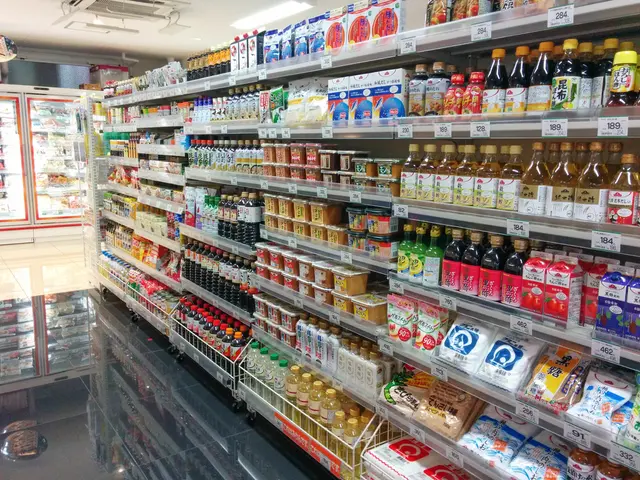Trickery in Trade: Cunning Strategies Used by Chinese Exporters to Evade U.S. Tariffs Revealed
Skirting U.S. Tariffs: A Growing Concern for Chinese Exporters
It seems like Chinese exporters are finding crafty ways to wriggle out of paying U.S. tariffs, according to a Financial Times report. They're either submitting lower prices for their goods or attempting to tamper with product descriptions to avoid tariffs.
These tactics are making life hard for politicians, who are now pleading for more resources to keep an eye on customs practices. The complicated trade policies introduced by U.S. President Donald Trump have brought chaos to international trade, with China bearing the brunt of hefty tariffs.
Chinese exporters are seemingly unfazed, offering U.S. companies "Delivery Duties Paid" (DDP) services, meaning they handle the customs duties. However, these sneaky suppliers are reportedly undercutting their prices or suggesting false product descriptions to dodge the tariffs.
The Threat to the U.S.
This act known as "tariff dodging" is a direct threat to the U.S., potentially undermining Trump's mission to boost U.S. companies by encouraging them to buy more local products. In the long run, it could create an unfair playing field, as companies following the rules end up paying full tariffs while their cooperative counterparts evade them.
It's difficult for authorities to take action against these Chinese companies because many of them operate as "Foreign Importers of Record," meaning they register as official importers without a physical presence in the U.S.
Politicians like Senator Bill Cassidy of Louisiana are pressing the U.S. government to beef up resources to monitor customs practices more closely and enforce the rules. He's currently working on a bill aimed at increasing transparency in international supply chains to combat fraud.
Meanwhile, the U.S. Customs and Border Protection (CBP) has vowed to take tougher measures to enforce tariffs, promising to impose "the heaviest penalties allowed by law."
stm
Busting Evasion Strategies: What's Being Done?
Although the U.S. has taken action against tariff evasion, current measures have faced challenges, with Chinese suppliers employing strategies such as mislabeling goods, undervaluing them, and transshipping them through third countries like Vietnam or Cambodia to bypass tariffs.
Countries like Vietnam are stepping up efforts to prevent illegal transshipments, but transshipment remains a persistent issue. To combat this, legislative actions are being considered:
- Transshipment Regulation: A proposal to impose supplemental tariffs on Chinese content embedded in other countries' exports might be challenging to implement because it would require significant changes to how imports are tracked and valued.
- Strengthened Enforcement: The U.S. Customs and Border Protection (CBP) plans to increase scrutiny and penalties for tariff evasion, including more rigorous audits and the use of technology to detect mislabeled or undervalued goods.
- Supply Chain Transparency: Proposals may involve requiring exporters and importers to provide detailed information about the origin and value of goods in a more transparent manner, possibly through stricter documentation requirements and certifications that the goods comply with U.S. regulations.
- Legislative Reforms: There may be moves to reform existing trade laws to better address modern evasion strategies, including strengthening provisions related to transshipment and the reclassification of goods.
These measures aim to increase the costs and risks associated with non-compliance to reduce tariff evasion. However, their effectiveness will depend on effective enforcement and international cooperation.
- These evasion strategies employed by Chinese exporters could pose a risk to the U.S. finance industry, as they might lead to a loss of revenue due to unpaid tariffs.
- The complications in the U.S. customs practices, driven by the extensive tariffs on Chinese exports, have become a subject of interest in both general news and politics, stirring debates about fair business practices.
- In an effort to address tariff evasion, the crime-and-justice sector is likely to see increased scrutiny and enforcement, with authorities focusing on catching and penalizing those involved in customs fraud.








